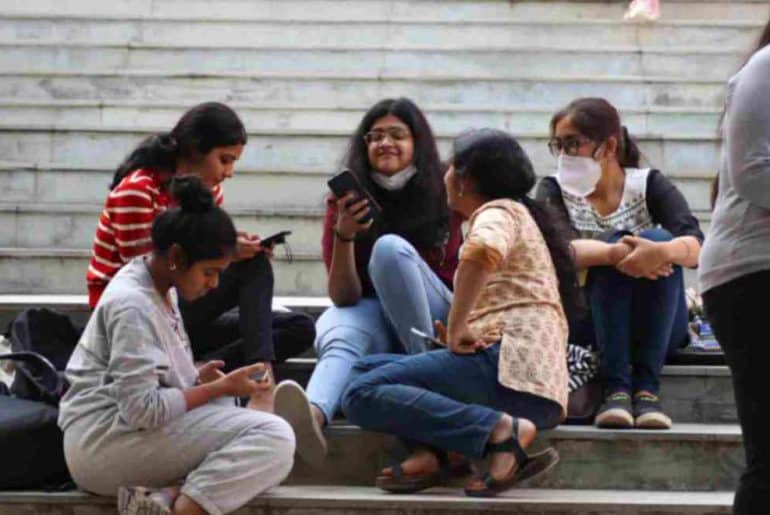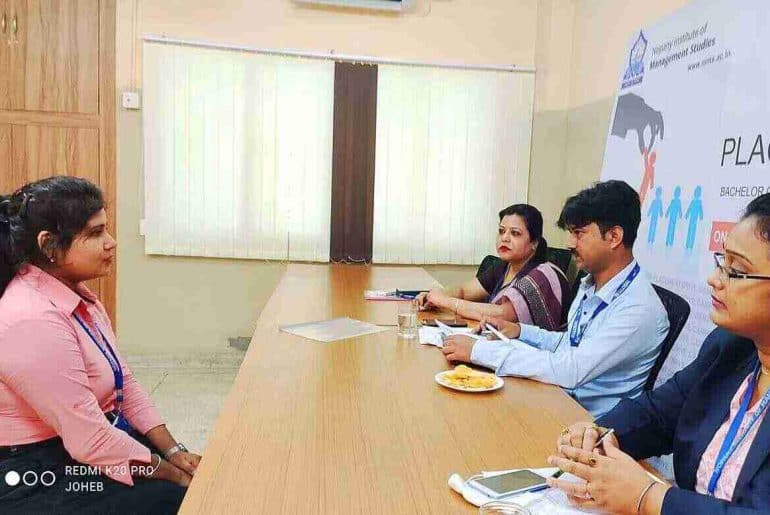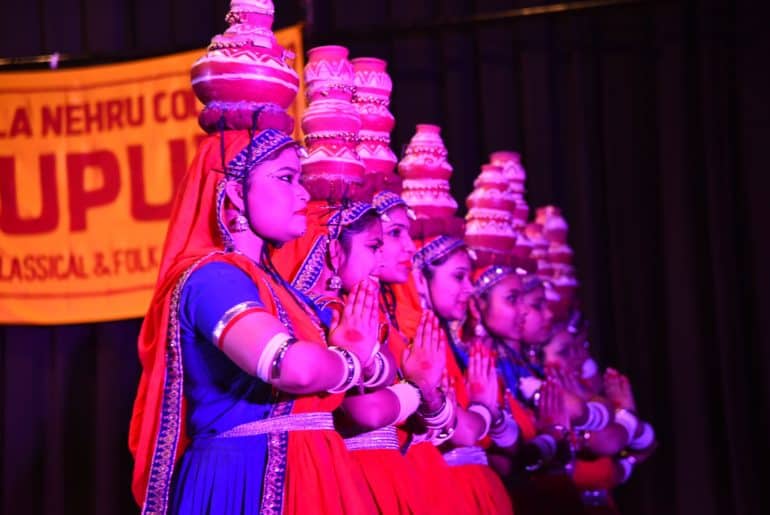Beyond the Glitz of Charity and Equality, lies the corporate culture-ification of social service, where Insta Digits hold greater value than Impact, misinformation prevails, and the crimes of establishment remain unchallenged.
In my Freshman Year at DU, canonically as a rebel-tired-of-societal-obligations, enthralled by the hunger to usher a change in the patriarchal and chauvinistic ideals that run the world, I found my haven in Girl Up. Within the four walls of Inclusivity, Intersectionality, Impact, and UN Affiliation, I discovered my abode until I witnessed each one of them crumble to the ground of status quo appeasement.
In order to uphold absolute respect for and safeguard the identities of the sources, their respective Girl Ups will be kept anonymous throughout the report.
The Official Website of the Organization states that GirlUp is a girl-centered leadership development initiative, focusing on equity for women in spaces where they are unheard and unrepresented. Idealistically, an organisation such as that would have resulted in tremors of change within the societal structure and standards. However, on account of the absence of the same, GirlUps fail to endorse that despite holding a beautiful core belief. Within this report, an attempt has been made to analyze the issues about them by surveying DU students, who either are or have been part of the initiative.
While the UN initiative, at its core, focuses on transforming the lives of the underprivileged and advancing Gender Justice, their local chapters are provided with a target of 5 projects within a year, the completion of which would provide them with certifications from the UN, and so, their foreground turns into Social Media awareness. Social Media, albeit an impactful tool, is restrictive, and when combined with underdeveloped ideas, could often lead to the contrary results. Similar was the case when, a GirlUp from a reputed North Campus college, posted about how Imane Khelif had failed the gender eligibility test, while in fact, the test results were never revealed. And while DU societies are known for their secularism and separation from religion, the aforementioned GirlUp posted stories celebrating the inauguration of the Ram Mandir of Ayodhya, depicting an unwarranted appeasement of the prominent status quo.
The activism, “conveniently, focused at favouring the status quo, also depicts an appropriation of cultural icons”, was quoted by one of the sources, further stating how the GirlUp of their college, curated a post for Dalit History Month, focusing more upon Mahatma Gandhi, while little was discussed of the renowned icon, B.R. Ambedkar. Another person recalls how, in the aegis of a project titled Manorama, centred upon the lives of marginalized women, their GirlUp created videos of awareness, however, the representation was affixed on people from privileged backgrounds, antithetical to the core of that project.
The Five Project policy restricts their participation to mere play of Social Media, and so all their resources are directed towards social media management and garnering the required views and numbers, to an extent that the Social Welfare aspect of the projects takes a backseat, fading into oblivion.
“The Certificates are promoted as ornaments of the CV, and become a primordial tool to encourage people to join, often in ways similar to affiliate marketing tactics”
claimed a source who held a core member position at two GirlUps.
Thus, Tokenism in the guise of Activism gets promoted, and so even when members join in with an ignited sense of bringing a change, the vicious cycle of likes and follows traps them into its ploy.
A combined effect of the same is short-term projects, the long-term impacts are overlooked, in attempts to be one step closer to the UN certification, a ‘brownie point’ on the CV. The projects thus turn into half-baked attempts given the time crunch and limited resources that need to be employed to cover 5 such projects year long.
“..for a project, we collaborated with the Robin Hood Army and a GU chapter, (and unlike RHA) the GU kept stating the need for certificates, in the absence of which their members would not show up.”
recalled another student about their experience with Girl Up, indicating how “passion gets eroded, and Social Media numbers take over.”
“During the Pujo, when all the organizations I was affiliated with, allowed a short leave, the Girl Up I held a Position of Responsibility at, refused.’
divulged a member of a reputed GU of South Campus, elaborating upon how the workload situation spirals deeper,
‘…and when I was severely ill for a month, instead of being accommodating, I was compelled to take up projects, and attend hours long meeting over petty issues that could be solved over chat.”,
Adds one student reflecting upon how an organization that emphasizes upon the prioritization of mental health, conveniently forgets the same; often creating obstructions in the professional, and otherwise, life of the members.
The parable of the mismanagement runs profound, a staggering specimen was presented when in a GU, a core member was removed from their position over disorderly conduct; however, along with them, the person who brought the incident to light was also suspended on the grounds of agitating out of spite,
“..the anonymity I was assured was disrupted, it was turned into an IntraSoc gameplay, and while discussions with both the parties involved were held, I was removed without even a 30 days deadline.”,
exhibiting how the organization failed at both a professional and personal ground.
GirlUps at its core, starts as a medium to generate change in the world, however, in the midst, it undertakes a trajectory of first-world charity; oblivious to the intersectionality and struggle, a route towards becoming a multilevel market tactic of UN certification, a place that largely deviates from its core principle. Per Contra, quite like how the United Nations tries to project a certain optimism for humanity, on a rampant retrospect, GirlUp is capable of bringing about the change that it aspires to see, given it actually works for it.
Read Also: What is the cost of my dissent
Featured Image Credit: Google










